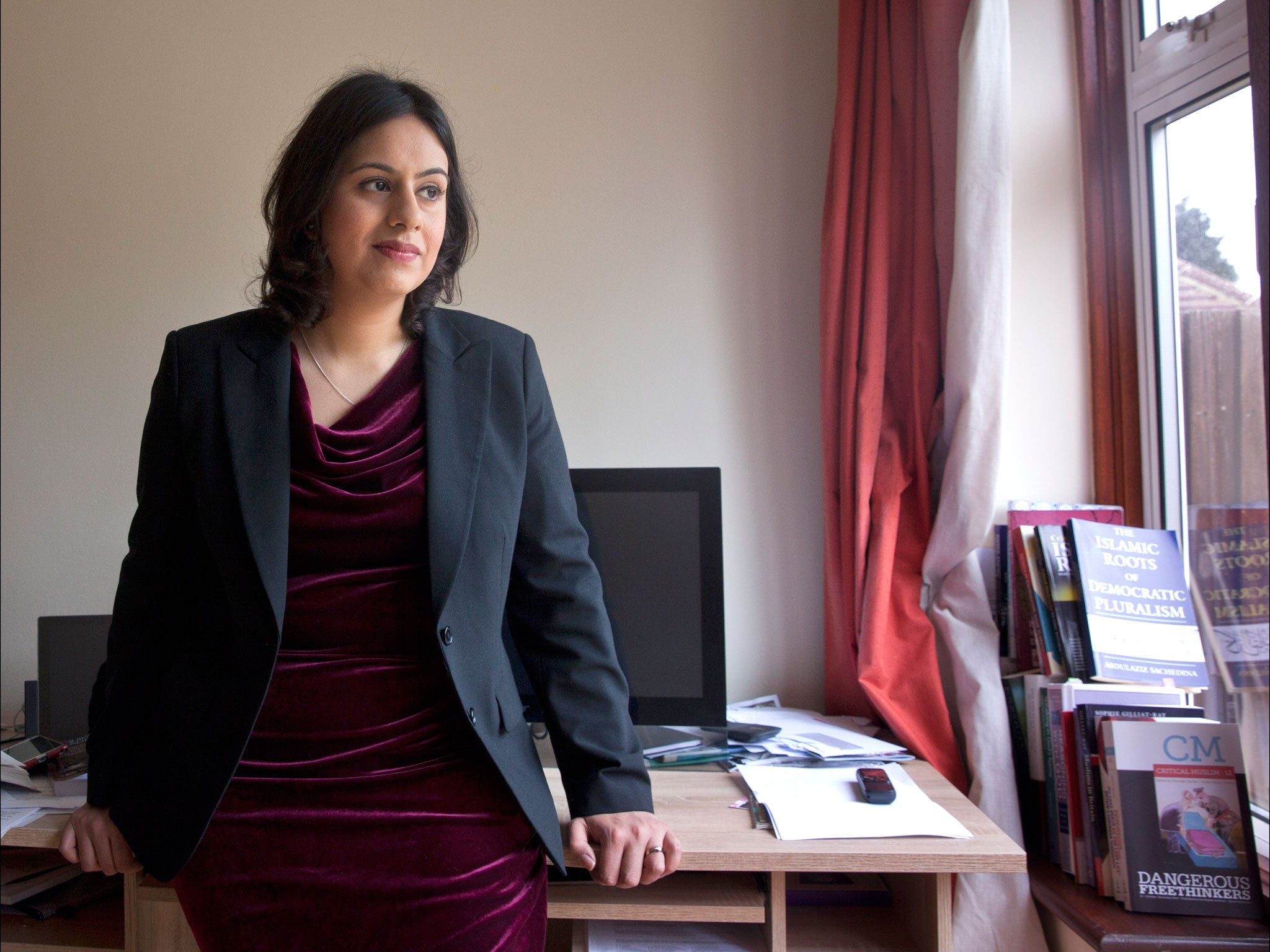Sara Khan interview: Twitter abuse, gender-segregation on campuses, and Islamist extremism
Khan is the director and co-founder of Inspire, a human rights organisation that aims to tackle the inequalities facing British Muslim women

You were the only British Asian woman recognised in the Woman's Hour 2015 Power List. Your organisaton, Inspire, is going from strength to strength. I imagine it was a good year for you.
It was a significant year. I remember the Bethnal Green girls going [to Syria] and how shocking that stories was. It highlighted the threat that extremism poses to young Muslim people in this country. We've done an incredible amount of work. There's been high points and low points. We've been attacked a lot and there have been witch-hunts. People have tried to prevent us going into schools and tried to disrupt our events.
How much of that hostility did you expect when you started?
We were one of the very few Muslim women's organisations to say we totally opposed some UK universities' new guidelines that said you could have gender segregation on campus. That's when the backlash and abuse started. It said if you don't subscribe to a particular narrow, rigid and conservative interpretation of Islam, particularly as women, you will be intimidated. It intensified when we started to challenge Muslim extremism. Part of me always expected it. We know there are pro-Isis sympathisers in this country. By taking a stance against Isis, we knew we were going to irritate. But it's got to be done. If we don't speak out, the silence is dominated by the voices of extremists.
How bad did it get?
I've had to go the police. Last April I decided to close down my Twitter account because of the abuse. I've had to think about security at my home. But it's all unfortunately part of the job description. You don't do this work because you have nothing better to do. You do it because it's a cause, rather than a job.
What keeps you going?
When I see Muslim parents crying on TV because they've lost their children to extremism, I think, that could have been prevented. Kids who have gone off on a path of radicalisation, at some point that journey could have been curtailed.
Do you remember the first time that you came into contact with Islamist extremism?
I remember when I was about 13 or 14, young British Muslims joining organisations like Hizb ut-Tahrir. It was something that I could never understand. It used to really disturb me as a teenager: why is it that when you become religious, your interpretation is not my interpretation of Islam? I've always understood Islam to mean peaceful co-existence, respect, tolerance and human rights.
Why do you think women's rights are such a fixation for extremists?
All the studies show that when you empower women with education and positions in public life, societies become more democratic, stronger and less prone to extremism. When the Taliban attacked Malala, there was a very rational reason, from their perspective, to do that. Because they recognise that educating girls, as she was calling for, is a direct threat to their own existence. The empowerment of women challenges extremism.
Do you think British society as a whole is squeamish in tackling these issues?
Everyone has a role to play. So I think, yes, mosques and faith leaders absolutely have a role. In this country, we have developed a robust response to far-right extremism. When we heard Nick Griffin spout hatred against Muslims, we'd all say "this is completely unacceptable". But we've not developed the same anti-fascist movement against Islamist extremists. As a Muslim, I am offended by Islamophobia – but I am equally offended by Islamist extremists who are promoting hatred about Jews or gays or ex-Muslims.
Biography
Sara Khan, 35, is the director and co-founder of Inspire, a human rights organisation that aims to tackle the inequalities facing British Muslim women. Until a few years ago she ran the enterprise from her kitchen table. Last year, an open letter she wrote to Muslim girls who might be considering joining Isis went viral. She has masters degrees both in pharmacy and human rights, and lives in Hertfordshire with her partner and their two daughters.
Join our commenting forum
Join thought-provoking conversations, follow other Independent readers and see their replies
Comments